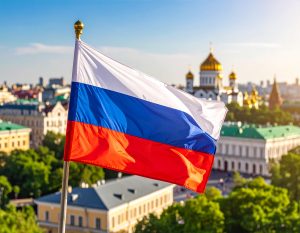The economic landscape is a vast, complicated, and entangled entity, where each country’s financial health and stability are not isolated entities, but intricate, interconnected cogs in the wheel of the global economy. With this in mind, we delve into an intriguing exploration of the United States’ impact on the world economy. To comprehend this better, we must journey into the heart of the butterfly effect in economics, where the flutter of one economy sends ripples of change throughout the rest of the global market.
The United States of America, regarded as the world’s largest economy, undoubtedly has a significant influence on the global economic system. It’s thus only logical to question whether America’s financial decisions and strategies are causing tremors in the world economy. Is the giant’s stride indeed creating a ripple effect that’s unsettling the global economic pond?
To properly dissect this issue, we must first understand that the United States boasts a gross domestic product (GDP) that is nearly as much as the total GDPs of the next three largest economies combined. This sheer size and presence of the U.S. economy mean that its actions reverberate throughout the world in a manner similar to the butterfly effect, a concept derived from chaos theory, where a minor change in one part of a system can drastically affect the rest.
Over the years, America’s economic policies have often been the cause of significant economic changes globally. For instance, when the Federal Reserve, the U.S. central bank, decides to adjust interest rates, it doesn’t only affect the domestic economy. These changes reverberate across the globe, influencing global trade, investment decisions, and even the economic policies of other countries.
The phenomenon is not exclusive to the United States. China’s economic slowdown in the past few years has had a significant impact on global commodity prices, affecting economies, particularly in Africa and Latin America. The Brexit decision in the United Kingdom also sent shockwaves through the European and global economies. However, due to the size and influence of the United States’ economy, its actions, decisions, and policies tend to have a larger, more profound effect.
Some critics argue that America’s large fiscal deficits, trade policies, and political decisions are causing instability in the global economy. The country’s recent adoption of ‘America First’ trade policies, for instance, triggered a series of tariff wars that not only affected the countries directly involved but also caused ripple effects throughout the global supply chain.
Moreover, the U.S.’s massive fiscal deficit, which swelled to unprecedented levels amid the Covid-19 pandemic, is another point of concern. The U.S. government’s decision to significantly increase public spending to combat the economic effects of the pandemic led to a massive surge in U.S. public debt. This borrowing spree, critics argue, could result in a future financial crisis, not only for America but also for the rest of the world.
However, defenders of America’s economic policies argue that the U.S.’s role in the world economy is much more nuanced. They contend that the U.S. provides significant benefits to the global economy, such as providing the world’s primary reserve currency, offering a safe haven for investors during times of global economic uncertainty, and driving global innovation and technological advancement.
In any case, the reality is that no country, however large or influential, can act in a vacuum. Every economic decision a country makes, particularly one as economically significant as the United States, sends ripples across the global economic pond. Whether these ripples are perceived as beneficial waves of progress or destructive tsunamis of instability, however, is often in the eye of the beholder.
As we delve deeper into this topic, examining historical precedents, analyzing current economic policies, and projecting future scenarios, what becomes clear is that the U.S.’s role in the world economy is multi-faceted and complex. The American economy


